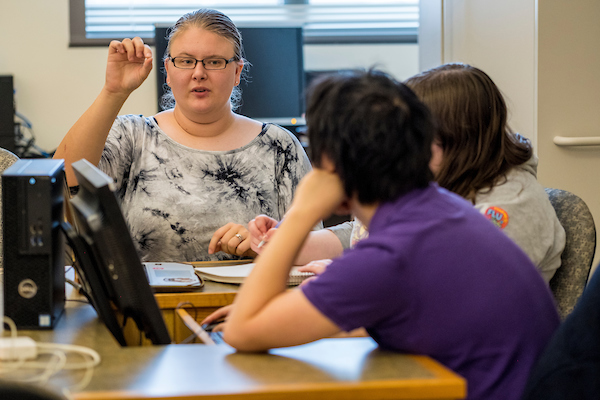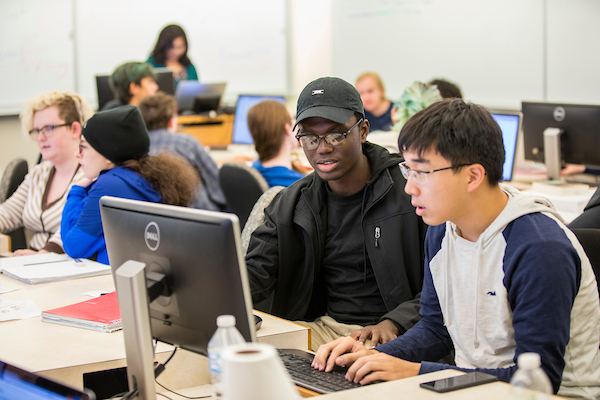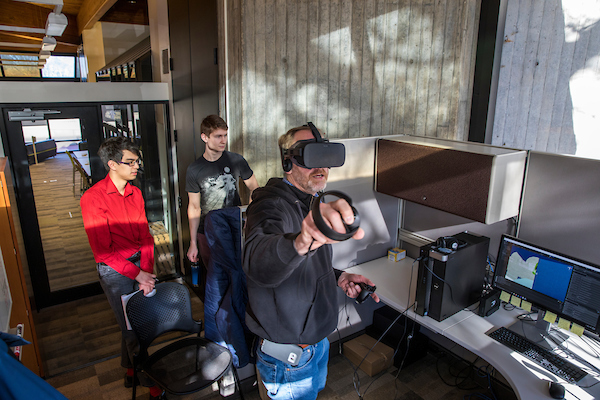Computer Science in the Academic Catalog
Vital Elements of Grinnell's Computer Science Curriculum

Grinnell's computer science curriculum has several special strengths, including:
- Innovative introductory courses that emphasize multiple views of problem solving and several programming languages,
-
Curricular options cover the core of undergraduate computing and also provide flexibility to address student interests and career options.
- Core courses explore fundamental ideas, principles, algorithms, structures, and problem solving techniques with care, rigor, and thoroughness.
- One or more software development projects connect principles and practices with experience developing software to meet client needs and serve the community
- Electives that build upon core topics and provide breadth.
- Balance of theory and application,
- Varied and innovative pedagogy,
- Extensive opportunities for student-faculty research.
Problem-Solving Perspectives
Computer science recognizes at least four problem-solving approaches as being fundamental to work in the discipline. Each approach involves a distinct way of thinking, and each is supported by a range of computer languages. These paradigms may be outlined as follows:
- Functional Paradigm:
Supported by such languages as Scheme, LISP, ML, Miranda - Imperative Paradigm:
Supported by such languages as Pascal, C, FORTRAN - Object-Oriented Paradigm:
Supported by such languages as Smalltalk, C++, Java - Logic Paradigm:
Supported by such languages as Prolog, Gödel

Since different approaches have advantages for different problems, people involved with computing should be comfortable with several of these paradigms.
Grinnell's introductory courses provide students with considerable practice and insight for each of these approaches early in the curriculum, introducing the functional, object-oriented, and imperative paradigms.
Core courses in theory and systems
Grinnell's curriculum identifies both theory and systems as core areas, and the overall curriculum has achieved international recognition for four-year, undergraduate computer science programs.
-
Algorithms and theory: All majors take two foundational courses:
- Analysis of algorithms
- Automata, formal languages, and computational complexity
- Computer organization and architecture
- Operating systems and parallel algorithms

Software development project(s)
People use computers because they can provide services and help in the solving of problems. Thus, many courses and much research throughout the College utilize various aspects of computing. The computer science curriculum includes two upper-level courses with a strong software-development orientation.
- Software Design and Development examines methodologies for the effective development of large-scale software packages and uses a team approach to apply principles to actual projects that serve the needs of clients within the local community.
- Software Development Leadership offers experience working with clients and mentoring and supervising peers in teams developing software for community organizations.
Electives provide options and flexibility
The computer science curriculum includes several electives, in addition to courses already mentioned. Students choose electives as well as foundational courses, as they work with their adviser about appropriate alternatives to support their interests and career goals. The following list of electives illustrates the range of topics offered regularly.
|
|
